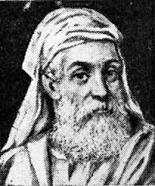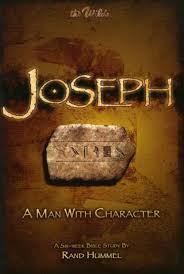Art and the Bible by Schaeffer
In his primer, Arts and the Bible, Francis Schaeffer attempts to tackle the topic of how man has interacted with art in the past and how that effects our interaction with art today. He is of the opinion that man mainly creates out of his world view – how he perceives the world. For Christians, our world view should include the actions of the Savior and everything connected to Him, and therefore reflect that view.
The most insightful part of the first essay was the section of “the Lordship of Christ.” This was because it directly related the similarities between Gods lordship in man to each other. He makes three points so logical, they are impossible to ignore. First, God created all of man. Our bodies as well as our souls are from Him, meaning that are creativeness is sources in Him. Secondly, we are His through Christ, so we have no excuse to disobey Him. Thirdly, since we are His, we are to walk as His, including our view on art.
The most insightful part of the second essay was fifth perspective: Four Standards of Judgment. It was my favorite because it made so many good points such as “because of people not making a distinction between technical excellence and content, the whole of much great art has been rejected.” This truth is shown in many common people and their comments on modern art. It is misunderstood in its essence and therefore disliked. Another point is “it is possible for a non-Christian to communicate a Christian world view.” Though you may not think it, this is possible. People are not tied to their religious convictions when creating. Their view of religion does affect their art, but does not limit it. The last good point was “the greatest art fits the vehicle that is being used to the world view that is being presented.”
Joseph by Hummel, Part 3 of 3
Introduction:
“…It is interesting that some of the greatest leaders in the Bible spent many, many years serving others: Joseph served Potiphar and the prison guard; Joshua served Moses for forty years; David served his father and his king before he became king;…Christ came to earth to serve… Most of our greatest Bible heroes were some of the greatest servants that ever lived. We are never more Christlike than when we are serving.
Spiritual leadership is a result of many years of growing and changing. never give up or quit – never throw in the dirty towel. If you and your friends would be willing to learn lifes lessons through years of serving others, you too will be able to experience years of being used by God to impact others for eternity. What you are learning through your teens and twenties will help you help others draw closer to the Lord in your forties and fifties…”
Section 4 of Joseph covers the rest of the significant hardships of Josephs life.
Hardship 1: Forgetful Bearers
While in prison, Joseph does the kings former butler a favor. But after the man was forgiven and released, he forgot all about Joseph, at least for two years. But to Joseph, it was two years in prison! Not exactly freedom. Hummel reminds the reader that humans “often complain when.. faced with a trial that continues for days and even weeks…” But what about peoples trials that are months long? Apostle Pauls 2nd letter to the Corinthians describes trials as “preparing for us an eternal weight of glory…”
Hardship 2: Pharaoh/Kings Expectations
Pharaohs told Joseph can interpret dreams, and Joseph delivers, but Joseph makes it clear that the ability to interpret came directly from God. He doesnt use the situation to blackmail the Pharaoh out of prison, or even barter for a job. He does as hes told, and gives the credit to God.
Hardship 3: The Position
Joseph interprets a dream for Pharaoh, so Pharaoh, seeing Joseph is wise, makes Joseph his Vizier, or Vice-President. The new position includes a lot of responsibility, including the well being of the country for the next fifteen years. Apostle James says the attributes of a wise man are purity, peacefulness, gentleness, reasonableness, merciful, impartiality, and sincerity.
Hardship 4: Revival during Famine
After 8 years as Vizier, the famine came, and with it, Josephs brothers. So he decided to do something difficult, and confront their hatred. Hummel points out that he accused and did to them everything they had accused and done to him. He called them spies. He used rough speech. He sent them to prison. And he “sold” one of them to himself while the others left. He renewed their memories by also giving them undeserved expressions of love. He provided for their needs, comforted them, and spoke kindly to them.
Resolution: Reunion during Feast
The confrontation and love got to the brothers minds and resulted in healed relationships. They repented of their hateful actions, and lived with him in Egypt. Hummel encourages readers to follow Josephs example and be peacemakers. Families shouldnt allows mistakes of the past to continue, but offer reconciliation. Be like Joseph and dont avenge, but forgive.
Joseph by Hummel, Part 2
The next portion in the book handles the late teen to late twenties years in Josephs life, most of which were full of trials.
Trial 1: The Well. At this time, JUDAH was set to get the inheritance, not Reuben (because of sleeping with his fathers concubine). Which is one reason he saw Joseph as a threat and suggested they throw him in a well. Regardless of Reubens intentions in wanting to save Joseph from his brothers wrath, the brothers were content to sell Joseph, because they:
A. Surrounded themselves with fools
B. Considered decisions by their benefits
C. Thought they couldnt get caught
D. Had hardened their hearts to suffering
Trial 2: Slavery. Once sold to an Egyptian, Joseph was efficient, even when forced (involuntary labor). The result was that God had him promoted to a higher rank. Hummel uses this section to ask the reader if they are efficient at involuntary things, like chores.
Trial 3: Temptation. Josephs owners wife tells him to sleep with her. But he doesnt listen to her – he wouldnt even let her talk him into it. He also avoided her presence, because he knew staying would be foolish. Again, Hummel uses this to ask the reader if they frequent places that are foolish to be at. Joseph also didnt want to disobey God by being impure.
Trial 4: Prison. In this portion, Gods goodness precedes any action on Josephs part. But later, we can see that he was submissive, tolerant, and compassionate with the prisoners.
Joseph by Hummel, Part 1
Though I was young when I first read this, I recently had a chance to reread it. Though short, its a very helpful study on the life of Joseph.
The first weeks portions are dedicated to his family: father, mother, and brothers, to better understand the context of his childhood. It was a little depressing, especially the part bringing out the lack of fathering done by Jacob (Dinah). And of course, Rachel wasn’t perfect. Even Josephs names meaning, May-He (God)-Add, shows her ongoing competition with her sister Leah for her husbands affection.
The second weeks portions are dedicated to his younger years and the few scenarios Genesis gives us details of.
Scenario 1: The Shepherds. In chapter 37, Joseph reported on Dan, Naphtali, Gad, and Asher for their poor shepherding. People say that it may have been because he disliked them, but Hummel urges the use of logic by considering who Joseph talked to and what he told them. Most people who intend trouble tell the wrong people their opinion. This leads Hummel to think that Joseph merely respected truth (thus adding to his character).
Scenario 2: The Coat. Also in chapter 37, Jacob gives Joseph a nice coat to show his favor. Joseph wears it, whether out of duty, or pride. But the motivation tells us more about him.
Scenario 3: The Prophecy. The chapter continues telling the story of his family, with Joseph voicing his dreams, which ended up being prophecies. Was this arrogance or naiveté? Or neither?
Scenario 4: This portion of the story wraps up with Josephs Journey. Jacob asks him to travel to Shechem to check on his brothers, and Joseph replies, much like Samuel, that he is willing to be used, despite that: It was at least a 3 day walk, the Shechemites HATED Israelites, and Josephs own brothers hated him.



